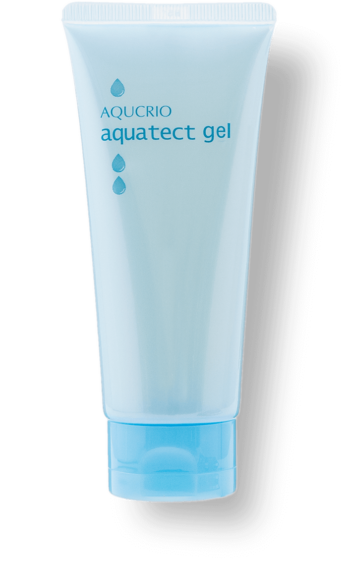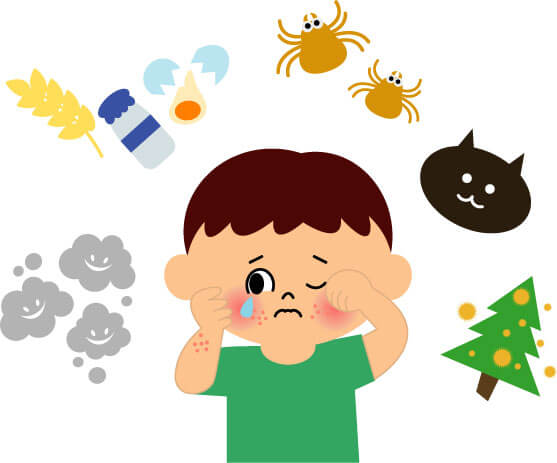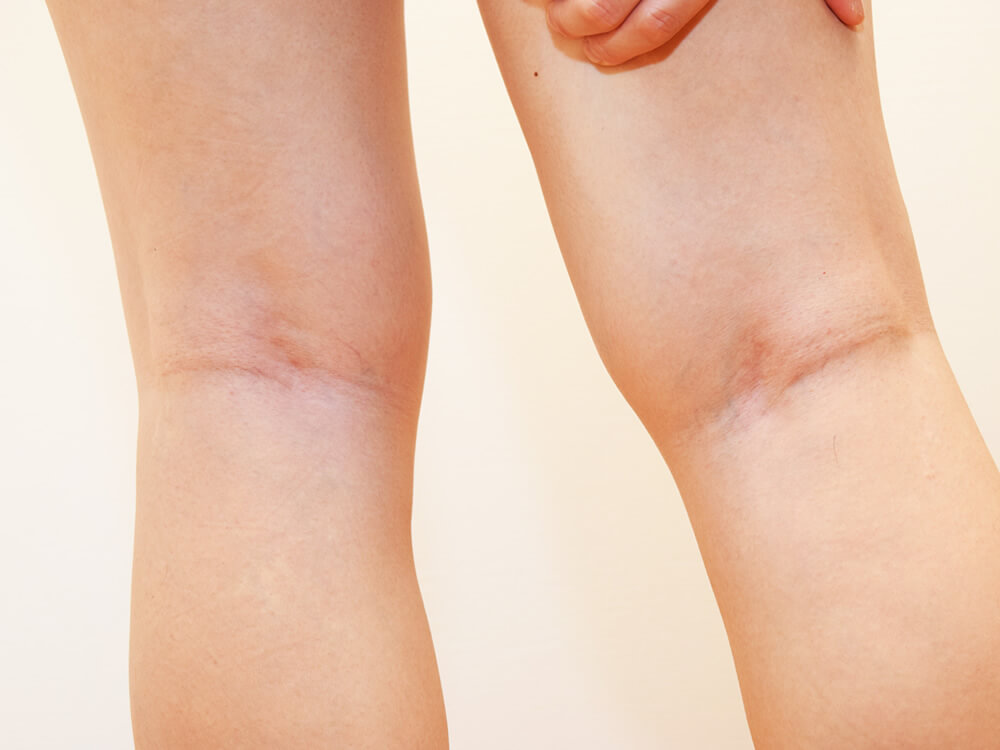Do you find yourself in a vicious cycle where you can’t stand the itchiness behind your knees and end up scratching too much, which makes them itch even more?
As you may have experienced already, scratching and damaging your skin can make it bleed and swell.
If you already experience itchiness, it is important to take action as soon as possible to cure your dermatitis or eczema.
The worse your skin condition gets, the slower it will heal.
In this article, we will discuss the causes of itchy knees and effective solutions to treat it.
Instead of temporarily relieving the itchiness by scratching it, you need to prevent it from getting worse by dealing with it early.
If you suffer from itchy knees or skin, try the following measures we will introduce below.
In addition to using over-the-counter medications and products, it is also important to review your daily lifestyle in order to prevent itchy knees and skin.
Dry skin is particularly prone to itchiness.
Be sure to make a conscious effort to keep your skin moisturized on a daily basis.
In the second half of this article, we introduce some products we recommend.
Please check them out if you are interested!
| Product name | Aquatect Gel |
| Product image |  |
| Weight | 20g |
| Features | ・16 moisturizing ingredients that moisturize the knees to suppress itchiness ・An all-in-one product that completes skincare with one bottle |
| Start caring with Aquatect Gel |
Causes of Itchy Knees
The unpleasant itchiness is one of the body’s protective defense mechanisms.
The itchiness alerts our body of the area of abnormality, and we scratch it to remove the abnormality.
Now, our skin has 3 layers: epidermis, dermis, and subcutaneous tissue (in order of outside to inside). Each layer plays a key role.
- Epidermis: prevents external substances from entering and prevents moisture from evaporating (barrier function)
- Dermis: supports skin structure and elasticity
- Subcutaneous tissue: moves nutrients and waste products
The nerve endings that alert our brain of the itchiness are located at the border between the epidermis and dermis.
This is why itchiness is not felt in the body’s organs.
When you scratch an itchy area, it feels good in the moment.
However, scratching can damage your skin.
Scratching breaks down your skin’s barrier function and makes your skin more sensitive to even the slightest irritation, further increasing the itchiness.
Recurring itchiness behind the knees is a symptom of eczema or dermatitis.
It is mainly caused by external irritants and internal factors such as body constitution.
External irritants

There are 3 main types of external irritants that can cause itchiness.
- Physical irritants: sunlight, heat, cold, dryness, metals, clothing
- Chemical irritants: cosmetics, detergents, hair products, toothpaste
- Biological irritants: pollen, bacteria, plants, insects
There is no single cause of itching.
In fact, it can be caused by a combination of irritants.
Internal factors
In some cases, itchy knees are not only caused by external irritation but also by problems within the body, such as the following cases.
- Skin types such as dry skin and sensitive skin
- Abnormal secretion of sebum and sweat
- Allergies to certain ingredients and foods
When itchiness is caused by a combination of several factors, itchy eczema or dermatitis recurs even after symptoms have subsided.
All of these are abnormalities of the body, and it is important to deal with them according to their causes in order to prevent the itching from worsening.
Possible skin troubles when you have itchy knees and skin
The solution to itchy knees depends on the symptoms, so it is important to understand which skin trouble applies to your condition.
Here are 5 possible skin troubles when you have itchy knees and skin.
Heat rash
Heat rash is a skin trouble that occurs when the sweat ducts become clogged after sweating profusely, preventing sweat from being released.
It is more likely to occur among people who live in hot and humid climates, who play sports, or who wear clothes that have poor ventilation.
People always sweat to maintain their body temperature.
This is why sweat is important for maintaining your physical condition.
However, when too much sweat is produced, it does not fit into the sweat ducts and it oozes into other tissues, causing abnormalities.
The resulting symptom is heat rash.
Contact dermatitis
Contact dermatitis is a condition commonly referred to as rashes.
Specifically, it causes a variety of symptoms, including eczema, redness, itching, and blistering.
There are 2 types of contact dermatitis that occur on the back of the knees.
- Irritant contact dermatitis
- Allergic contact dermatitis
Irritant contact dermatitis refers to inflammation caused when the skin comes into contact with an irritant. Symptoms are often more painful than itchy, with large blisters and severe pain if the inflammation is severe.
Allergic contact dermatitis, on the other hand, occurs when a person is allergic to something that touches the skin. It usually develops within 24 hours of exposure to the allergic substance. As the condition worsens, the symptoms can spread and affect the skin around the knee area.
Both types of contact dermatitis can leave hyperpigmentation after healing, so treatment should be conducted as soon as possible.
Tick and mite bites

Tick bites are a skin trouble that increase during the summer, when people tend to sweat more.
There are 3 types of ticks that bite humans.
- Claw mites
- House dust mites
- House ticks
House dust mites are commonly found in homes.
They burrow into bedding and bite soft skin areas such as the backs of the knees.
Strong itching occurs from the day of the bite, and the bites are scattered irregularly.
That being said, not everyone gets bitten.
Depending on one’s condition, people are either bitten or not bitten.
Hives
Hives are partially raised, reddish swelling of the skin, with symptoms including burning and itching.
The most common cases of when hives occur are the following.
- After eating
- After contact with chemical or pharmaceutical agents
- Sudden temperature changes
- Stress and fatigue
The causes of hives differ between children and adults.
Children often develop hives due to infections such as upper respiratory infections or food.
Adults, on the other hand, are often caused by stress or the environment.
Hives tends to appear on soft skin areas such as the backs of the knees, and if touched because of itching, the skin becomes redder and redder.
It is best to avoid touching it as much as possible, as it can leave a mark.
Weakened skin barrier due to dryness
Dry skin can be a factor that causes itchy knees.
As mentioned earlier, itchiness is part of the body’s self-defense response to protect itself from the intrusion of external irritants.
When nerve fibers in the skin are stimulated, an itching substance is secreted and stimulates the sensory nerve.
This stimulated is transmitted as an itch to the brain, causing you to scratch your skin.
When the skin’s barrier function is weakened by dryness or scratching, nerve fibers in the epidermis become sensitive and respond easily, causing your skin to become more susceptible to itchiness.
Especially when scratching becomes a habit, the irritation from scratching is transmitted back to the skin, causing a vicious cycle of constant itching.
【If symptoms are mild】Solutions for itchy knees
If your symptoms are mild or not chronic, try the following 2 methods.
If the itching still does not go away, visit a hospital as soon as possible!
Ice the itchy area
If you want a temporary fix, cooling the itchy area is effective.
By lowering the temperature of the skin, you can calm your nerves.
Wrap an ice pack in a towel and apply it to the itchy area.
We also recommend putting ice in a plastic bag to cool the area.
If you do not have any ice packs or ice, a cold shower can also relieve the itching.
Moisturize to maintain the skin’s barrier function
If itching behind the knees is caused by dry skin or poor barrier function, moisturizing is recommended.
The outermost layer of the skin, called the epidermis, is further divided into 4 layers, the outermost of which is the stratum corneum.
The stratum corneum is directly related to the skin’s barrier function, and there is a sebum film on top of the stratum corneum.
By properly moisturizing your skin, the stratum corneum, which retains moisture, and the sebum film, which prevents moisture from evaporating, protect the skin from external stimuli.
There are a variety of moisturizing products available, but if you are experiencing itching on the back of your knees, your skin’s barrier function has already deteriorated, so products that have undergone safety tests are recommended.
We will avoid describing the details, but examples include the following tests.
- Stinging test
- Patch test
- Allergy test
Particularly, the stinging test is a sensitivity test that evaluates whether people with sensitive skin feel irritation such as itching or tingling.
This test will tell you if the product is “hypoallergenic” or not.
Therefore, it is a valid indicator for selecting hypoallergenic items.
【Directly target your itchy knees】Moisturizing cream that is famous for improving skin

Dry and itchy knees need to be moisturized.
But moisturizing with toners, lotions, and milky lotions are ineffective.
This is because toners and lotions only replenish water to your skin, and milky lotions only oil.
In order to properly moisturize the skin, both water and oil need to be replenished.
This is why we recommend Earthcare Asia’s Aquatect Gel!
By providing water and oil to your skin at the same time with its golden balance, it maintains moisture within your skin for a long time and prevents it from drying out.
Just by applying it to your skin, it quickly absorbs and keeps your skin moisturized.
In fact, it has been proven that the skin’s moisture content increased after 4 weeks of using Aquatect Gel.
In addition, Aquatect Gel has passed the stinging test, so it can be used by people with even the most sensitive of skin.
It has also undergone 3 other skincare safety tests that guarantee low stimulation, so it moisturized without extra strain on the skin.
“The back of my knees are itchy…”
“The back of my knees are very dry…”
If you experience any of these symptoms on your knees or other parts of your skin, please try using Aquatect Gel!


【If symptoms are severe】Solutions for itchy knees
When itchiness occurs on the back of the knees, scratching it can damage the skin and make it worse.
Therefore, it is important to avoid scratching as much as possible.
If the cause of itching is from clothes or sweating, remove the irritant by changing clothes or wiping away the sweat.
If the itching still does not get better, visit a dermatologist.
If you cannot go to a hospital, use over-the-counter medications.
However, self-treatment is not recommended, especially in the case of atopic dermatitis.
See a doctor
If the itching and swelling are severe and recurring, see a dermatologist.
Consultation is also recommended if any of the following symptoms are present.
- Skin is not only itchy but also red and tingling
- The affected area is bleeding
- You have been previously diagnosed with atopic dermatitis
- Fever and fatigue
In some cases, the cause of the itching may be internal, and internal organ disease or malignancies may be suspected.
For prompt treatment, consult a medical institution as soon as possible.
For smooth treatment, it is recommended to organize the following points before consulting a doctor.
- Areas where itching occurs
- When the itching started
- Daytime symptoms
- Symptoms at night
- Situations when itching is likely to occur (e.g., when stressed, while bathing, at work, etc.)
Keep a note of the above information on your phone or a piece of paper.
Self-treatment with over-the-counter medications
If you cannot go to the hospital or have mild itching, you can use over-the-counter medications.
Drugstores and pharmacies sell several types that are specific to itching, and the effects from each depend on the ingredients included.
- Antihistamines
- Steroids
- Antibiotics
Choose one based on your pharmacist’s advice that matches your skin condition and intensity of the itching.
When symptoms are mild: Antihistamines
Antihistamines suppress the production and function of histamine, which causes allergy symptoms.
They improve itchy skin and their effects are milder than steroids.
When symptoms are severe: Steroids
Steroids suppress the overreactive immune system response, calm inflammation, and reduce redness and itching.
They cannot be used on infected or festering skin.
Steroids are ointments that must be used with caution.
The following 5 points should be noted before use.
- Clean the area before applying the medicine
- Use the specified amount
- Gently spread it on the area (DO NOT RUB)
- Apply once or twice a day
- Stop using when symptoms subside
When the skin is suppurating: Antibiotics
Antibiotics control bacteria.
They can be used for itchiness caused by infection.
If you have healthy skin or the itching is not severe, you may want to avoid antibiotics.
If the area is oozing and suppurating, try using anti-itch medication that contain antibiotics.
Review your lifestyle to cure itchy knees

Itching behind the knees should not only be treated with over-the-counter medication, but it is also important to review your lifestyle and daily routine.
Over-the-counter medications may indeed make the itching go away, but they are not a fundamental solution.
To prevent the itching from recurring, it is important to remove the cause of the problem and address it.
Here are some points to consider.
- Avoid skin irritation
- Keep the skin well moisturized
- Distract yourself from stress
- Keep your surroundings clean
Avoid skin irritation
The following are some irritants that can aggravate itching.
- Scratching or rubbing the itchy area
- Unwashed soap and shampoo
- Bathing in hot water
- Clothes and underwear made of synthetic fibers
Scratching as well as rubbing the back of the itchy knee is too irritating for the skin.
This can cause the itching to worsen, so do not do this.
Be especially careful when taking a bath.
Lather soap thoroughly and wash your body while reducing the burden caused by friction.
Also, soap and shampoo left on the skin can cause itching.
Therefore, rinse them off carefully.
While it is good to keep your skin clean, hot water can easily dry it out.
Keep the water temperature lukewarm and avoid long or excessive baths.
As a rule of thumb, do not take a bath until your hands are soaked, which is too long.
Other irritants include prickly undergarments.
Choose underwear and clothes that are soft to the touch, such as 100% cotton.
Detergents used to wash underwear and clothes can also aggravate itching.
We recommend using detergents that are free of bleach and colorants and that use naturally derived ingredients.
Finally, chemical fibers such as stockings dry out the skin.
Applying body cream before putting on stockings will help prevent drying.
Keep the skin well moisturized
When the skin is dry, it is more likely to feel irritation.
The back of the knees, in particular, are often forgotten when applying body cream.
Make a conscious effort to moisturize on a regular basis.
Appropriate moisturizers for the back of the knees include Vaseline, body creams, and milky lotions.
All-in-one gels for the face can also be used to moisturize the body.
Many users of the all-in-one gel from Earthcare Asia, which operates this media, also use it for rough hands and body dryness.
Many of our customers are pleased with the gel, saying, “I feel safe because I can use it on my face,” and “I only need one gel for my face and body, and it’s easy not to have to buy so many different kinds of gels.
If you already have it, why not use it on the back of your knees as well?
If the itching is strong, there are also quasi-drug creams that contain dipotassium glycyrrhizate, which is said to reduce inflammation such as rashes.
If you want to moisturize and treat itching at the same time, try a cream with active ingredients that specifically treat itching.
Distract yourself from stress
Just as irritation can cause itching, a state of mind can cause itching.
Establish a regular rhythm of life by setting a time to get up and a time to go to bed, and get enough sleep.
It is also important to take care of yourself so that you do not get tired or stressed out by resting when you are tired or talking to someone about your problems.
Also, find something you enjoy comfortably, such as yoga, meditation, exercise, movies, reading, hot springs, massages, etc., and you may be able to avoid stress.
Keep your surroundings clean
To reduce irritation that can cause itching, keep your surroundings clean. The following are five points to keep in mind in order to maintain cleanliness.
- Wash off sweat and dirt when they are on you
- Clean the room frequently
- Use short-haired carpets
- Wash bedding regularly
- Ventilate the room regularly
Sweat and dirt left on the skin can easily breed bacteria and cause itching. It is important to wash off sweat and dirt after sports or after returning home to keep the area clean. At that time, please replace your clothes with new ones.
House dust mites and dust can also cause itching.
If a room is cluttered or overflowing with things, it is easy for dust to accumulate, so it is ideal to clean the room frequently.
It is ideal to clean the room frequently, and to dispose of dust immediately instead of storing it.
In addition, long-haired carpets are a haven for dust mites. To maintain cleanliness, change to a short-haired one.
Another thing to keep in mind is bedding.
Although there are some theories, it is recommended that bedding be washed once a week.
It is also recommended that bedding be washed in hot water of at least 60°C (140°F), so if possible, try to use this method.
If you cannot wash your bed or futon, simply vacuuming with a futon-specific head will make it more comfortable.
If you feel itchy when you sleep, try incorporating this into your sleep.
Finally, it is recommended that you regularly ventilate your bedding to improve air circulation.
Temperature and humidity can also make itching more intense.
Make good use of air conditioning to improve the indoor environment.
Summary
Itching of the back of the knee can have many causes related to external irritation and internal factors.
It may be controlled with over-the-counter medications, but if the itching repeats or is severe, a visit to a dermatologist is recommended.
Please be careful not to aggravate the problem by focusing too much on self-care.
In addition, we would like you to remember the following points
It is important to keep the back of the knee moisturized on a daily basis
Itching may be radically improved by reviewing your daily life
Stress relief is also important, as stress can also lead to itching
It is important not to scratch in order to prevent the itching from getting worse.
We hope that reviewing your daily life along with treatment will create a good cycle and make your life as comfortable as possible.




コメント